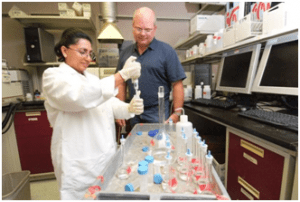Every day across the world, doctor’s offices and hospitals order laboratory tests in order to answer a huge variety of different medical questions for patients. Are a patient’s cholesterol levels too high? Does a patient have a certain gene that may indicate an increased risk of developing Alzheimer’s disease? A lab test will provide the answer. Patients and doctors alike trust the results of these tests. Unfortunately, a recent report suggests that this trust may be misplaced.

The lab tests are incredibly important in providing information to the medical professionals so that a treatment plan and appropriate medication can be issued if necessary. These will all have been based on the stringent research undertaken thanks to the use of medical trials where Patient Recruitment Services such as those found at https://www.richmondpharmacology.com/specialist-services/patient-recruitment will select appropriate individuals to take part in studies that will then inform the medical profession of the effectiveness of certain drugs on particular illnesses. The lab tests undertaken by the GP or hospital staff are often the first step in obtaining a diagnosis.
Many of these tests are developed by a laboratory that goes on to manufacture them. They are known as lab-developed tests or LDTs. LDTs have not been subject to the same level of scrutiny as other methods of diagnosis as the FDA has not enforced them to ensure they meet requirements demanded by the Federal Food, Drug, and Cosmetic Act (FD&C Act).
LDTs: a failure to diagnose
A report from the Office of Public Health Strategy and Analysis studied 20 LDTs and found that those that did not comply with FDA requirements under the FD&C Act were problematic.
The report has uncovered that some of these tests may have given false positive results, convincing some people that they had a rare illness when they did not and resulting in them undergoing unnecessary treatment. There have also been instances where patients have had a false negative result. This leads to a late diagnosis, which brings its own set of problems.
In order to resolve this massive headache, the FDA has now issued new guidelines requiring manufacturers of new LDTs to obtain market clearance by submitting a notification to the FDA. For certain LDTs, this will mean an application known as a 510k. The application process is not simple, but it is possible to enlist certain companies to help with FDA 510k.
